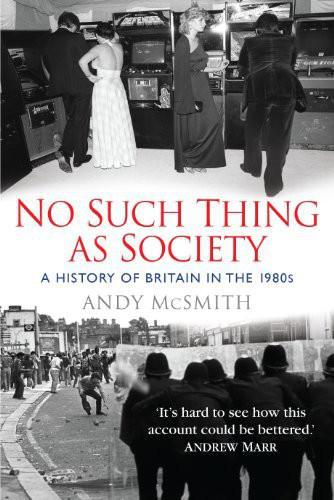
No Such Thing as Society
by
Andy McSmith
Published 19 Nov 2010
Thatcher was invited to give a video address to the Live Aid concert, but decided not to, though she wrote a supporting letter. When she met Bob Geldof at an awards ceremony a few days later, Thatcher told him: ‘We all, you know, have our own charities.’30 It says something for Thatcher that she never felt the need to be seen with rock stars or other celebrities, but a less appealing side to her was her utter indifference to world poverty. Under other prime ministers, international development was the responsibility of a government department headed by a cabinet minister, but not under Thatcher. Her lengthy memoirs have nothing to say on Africa, Third World aid, Live Aid or Bob Geldof, subjects that just did not interest her.
…
According to Frank Field, Labour MP for Birkenhead, a visitor to a Merseyside Jobcentre would see ‘jobs advertised at £1.20 an hour, £1 an hour, £57.25 a week’, while the best paid ones would offer ‘princely sums of £70 and £91 a week’. Hansard, 17 July 1985, col. 330. 2. People, 14 July 1985. 3. Bob Geldof, with Paul Vallely, Is That It?, Macmillan, 1986, p. 301. 4. Brenda Polan, Guardian, 3 October 1985. 5. Bob Geldof, Is That It?, p. 300. 6. David Pallister, ‘The arms deal they called the dove: how Britain grasped the biggest prize’, Guardian, 15 December 2006. 7. Financial Times, 17 November 1986. 8. By far the best primary source for any words attributed to Margaret Thatcher is the comprehensive archive held at Churchill College, Cambridge, almost all of which is available on the website of the Margaret Thatcher Foundation.
…
Barrie Clement and Ian Herbert, ‘Still Fighting, 20 Years On’, Independent, 5 March 2004. CHAPTER 9 1. Bob Geldof (with Paul Vallely), Is That It?, Guild Publishing, 1986, pp. 213–4, 215. 2. BBC News, 15 November 1984. 3. This information comes from an unpublished memorandum presented to a ministerial meeting held at the Foreign Office, 28 October 1984, now in the Cabinet Office archives. 4. Note by Charles Powell, private secretary to the prime minister, 29 October 1984; Cabinet Office archives. 5. Bob Geldof, Is That It?, p. 10. 6. Midge Ure, If I Was . . ., the Autobiography, Virgin, 2004, p. 132. 7.
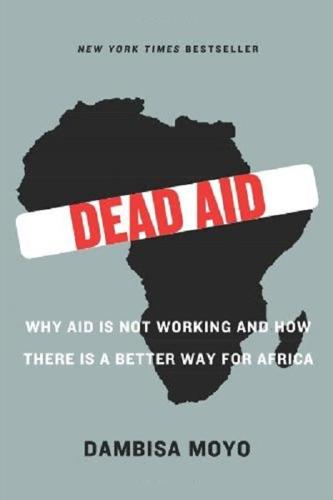
Dead Aid: Why Aid Is Not Working and How There Is a Better Way for Africa
by
Dambisa Moyo
Published 17 Mar 2009
Contents Foreword by Niall Ferguson Preface Introduction PART I The World of Aid 1 The Myth of Aid 2 A Brief History of Aid 3 Aid Is Not Working 4 The Silent Killer of Growth PART II A World without Aid The Republic of Dongo 5 A Radical Rethink of the Aid-Dependency Model 6 A Capital Solution 7 The Chinese Are Our Friends 8 Let’s Trade 9 Banking on the Unbankable Dongo Revisited 10 Making Development Happen Notes Bibliography Acknowledgements Index Foreword by Niall Ferguson It has long seemed to me problematic, and even a little embarrassing, that so much of the public debate about Africa’s economic problems should be conducted by non-African white men. From the economists (Paul Collier, William Easterly, Jeffrey Sachs) to the rock stars (Bono, Bob Geldof), the African discussion has been colonized as surely as the African continent was a century ago. The simple fact that Dead Aid is the work of an African black woman is the least of the reasons why you should read it. But it is a good reason nonetheless. Born and educated in Zambia, Dambisa Moyo also brings to her subject a rare combination of academic expertise and ‘real world’ experience.
…
Aid has become part of the entertainment industry. Media figures, film stars, rock legends eagerly embrace aid, proselytize the need for it, upbraid us for not giving enough, scold governments for not doing enough – and governments respond in kind, fearful of losing popularity and desperate to win favour. Bono attends world summits on aid. Bob Geldof is, to use Tony Blair’s own words, ‘one of the people that I admire most’. Aid has become a cultural commodity. Millions march for it. Governments are judged by it. But has more than US$1 trillion in development assistance over the last several decades made African people better off? No. In fact, across the globe the recipients of this aid are worse off; much worse off.
…
The foreign aid agenda of the 2000s: the rise of glamour aid In 2000, Africa became the focus of orchestrated world-wide pity, and not for the first time. The Nigerian humanitarian catastrophe of Biafra in 1971 (the same year as the Beatle George Harrison’s Concert for Bangladesh) had demanded that the world respond to human catastrophe. Consciousness was raised several notches with Bob Geldof’s 13 July 1985 Live Aid Concert where, with 1.5 billion people watching, public discourse became a public disco. Live Aid had not only been triumphant in bringing Africa’s plight to the wider public; it also trumpeted an era of morality. In the run-up to the new millennium, crusades like the Jubilee Debt Campaign capitalized on people’s desperate desire to be a part of something that would give aid and development policy another dimension.
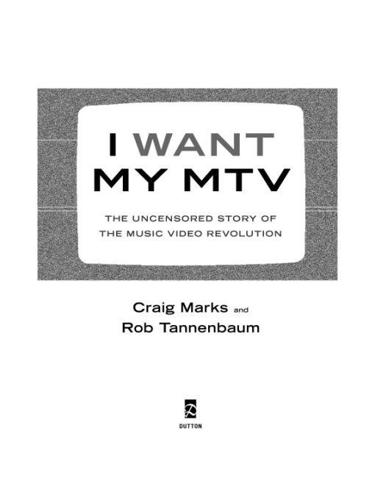
I Want My MTV: The Uncensored Story of the Music Video Revolution
by
Craig Marks
and
Rob Tannenbaum
Published 19 Sep 2011
CURT SMITH: We’d been touring for a year, really hard work. We had five days off and planned a holiday in Hawaii. Then Bob Geldof announced that we were playing Live Aid. He never asked us. Geldof thought he was so powerful that if he announced it, we’d have to say yes, or we’d look like bad people. I was pissed off. Whether we played or not wasn’t going to make a difference to the amount of money raised. So we went on holiday, because that was the only break we had. BOB GELDOF: I didn’t lie or blackmail very much. I had to announce the gig, and I realized that talking on the phone to a band was one thing, but unless their names were in the paper, they weren’t going to commit.
…
But their free programming was selling a zillion records. After the mid-’80s, MTV knew they had the power. That’s when the record companies said, “Please play our record!” instead of “Why should we give you our record?” Chapter 20 “DON’T BE A WANKER ALL YOUR LIFE” “DO THEY KNOW IT’S CHRISTMAS?,” “WE ARE THE WORLD,” AND LIVE AID BOB GELDOF LEARNED ABOUT THE DISASTROUS famine in Ethiopia while watching TV, and he resolved to raise money to feed starving Africans. Geldof was not a music star—his band, the Boomtown Rats, is remembered mostly for the crazy-assassin ballad “I Don’t Like Mondays”—but he knew England was full of pop phenoms, and he gathered them to record a song he cowrote, “Do They Know It’s Christmas?”
…
Live Aid raised close to $300 million, and Geldof was knighted, but the countdown began on the MTV careers of Martha Quinn, Nina Blackwood, Alan Hunter, Mark Goodman, and J.J. Jackson. NIGEL DICK: At Phonogram, I’d made two videos for the Boomtown Rats, when their career was on the way out and the band had no money. One day my boss, Tony Powell, said, “Bob Geldof’s gonna make this charity record over the weekend. You need to shoot a video and figure out how to do it for free. And it needs to be ready by Monday evening.” I had five days to plan, shoot, edit, and complete a video for a song which had yet to be recorded. Which actually had yet to be written.
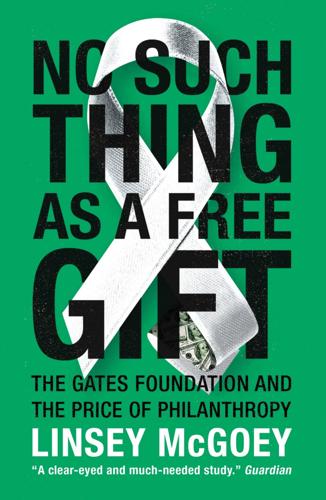
No Such Thing as a Free Gift: The Gates Foundation and the Price of Philanthropy
by
Linsey McGoey
Published 14 Apr 2015
According to Elkington and Hartigan, the new breed of socially aware entrepreneur is motivated by a deep sense of injustice at market imbalances that prevent the disadvantaged from accessing market goods. ‘Time and again’, they write, ‘these entrepreneurs have had a life-transforming experience, some sort of an epiphany, that launched them on their current mission’. They note that: ‘Among those who have reported some form of conversion experience are people as diverse as Bob Geldof, Bono, Fazle Abed of BRAC, Bunker Roy of Barefoot College, Roy Prosterman of the Rural Development Institute, and, in the corporate mainstream, Wal-Mart CEO Lee Scott (whose transformative experience came in the wake of Hurricane Katrina)’.8 Unfortunately, specific definitions of what that ‘mission’ may be and how it is accomplished are often quite vague.
…
Scott often suggested that competition from rivals hindered Walmart’s ability to raise its notoriously low wages. In his last year as CEO, he received a package in excess of $30 million, and he’s reported to own $220 million worth of Walmart stock. Why Elkington and Hartigan uphold him as a ‘social entrepreneur’ isn’t clear. Let’s look at the others mentioned above. Bono and Bob Geldof’s widely reported global aid efforts have invited praise and derision in equal measure. Geldof’s 2014 re-release of his perennial Christmas single, ‘Do They Know It’s Christmas?’ seemed a particularly inflammatory move, with legions of Africans reacting with either bemusement or outrage. Al Jazeera published some of their responses.
…
CHAPTER TWO 1James Wallace and Jim Erickson, Hard Drive: Bill Gates and the Making of the Microsoft Empire (New York: HarperCollins, 1993). 2See Simon Atkinson, ‘Hedge Fund Hippies Have Trip Out’, BBC, 8 June 2006, news.bbc.co.uk. 3Quoted in Freeland, Plutocrats, 58. 4Simon Johnson, ‘The Quiet Coup’, The Atlantic, May 2009. 5Quoted in Freeland, Plutocrats, 67. 6Zoe Williams, ‘Philanthro-Capitalism May Sound Ugly, But It Could Be the Future’, Guardian, 30 March 2012. 7John Elkington and Pamela Hartigan, The Power of Unreasonable People: How Social Entrepreneurs Create Markets That Change the World (Cambridge, MA: Harvard University Press, 2008), 3. 8Ibid., 12. 9Barry Malone, ‘We Got This, Bob Geldof, so Back Off’, Al Jazeera, 18 November 2014, aljazeera.com. 10Jeffrey Skoll, ‘Preface’, in Alex Nicholls, ed., Social Entrepreneurship: New Models of Sustainable Social Change (Oxford: Oxford University Press, 2006), vi. 11Quoted in Nicholls, Social Entrepreneurship, 45. 12Roger Martin and Sally Osberg, ‘Social Entrepreneurship: The Case For Definition’, Stanford Social Innovation Review (Spring 2007), 38. 13Ruth McCambridge, ‘Social Entrepreneurship and Social Innovation: Are They Potentially in Conflict?’
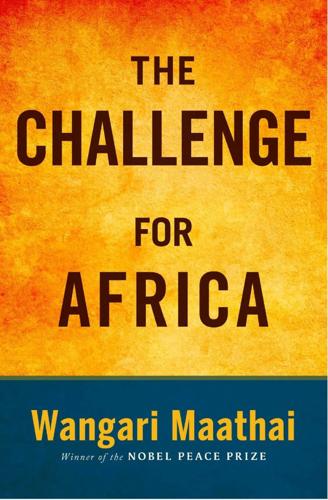
The Challenge for Africa
by
Wangari Maathai
Published 6 Apr 2009
It is always inspiring to watch famous or wealthy people stretch out their hands to help the poor. There are few well-known Africans who could command the same level of attention from the international media, donor agencies, or governments as Ms. Stone and others like her from the United States or Europe can. Some celebrities, such as Bob Geldof and Bono, who was also in the room that day, speak out forcefully about how current economic and political systems continue to harm Africa—views that they can take to any elected leader in the world and get some results. Nevertheless, once such international personalities have done their part, it is up to the African leadership and people to make sure the resources that result are used appropriately.
…
A representative image I saw a long time ago and that has stayed with me is that of an emaciated young girl with a distended belly on the cover of a UNICEF magazine. All of us have seen such horrific pictures. They prick our consciences, and may move many of us, including those with money or power, to try to help. Indeed, it was pictures of this kind beamed by the BBC from Ethiopia in 1984 that so disturbed the singers Bob Geldof and Midge Ure that they wrote the pop single “Do They Know It's Christmas?” to support Ethiopian famine relief. Their efforts grew into the fund-raising concerts Live Aid and, twenty years later, Live 8. It also inspired the launch of UK-based Comic Relief, a charity dedicated to eradicating poverty in Africa and elsewhere, and with whom the Green Belt Movement works in Africa.
…
And certainly, African governments have not paid enough attention to the continent's myriad problems, in part because in Africa they aren't viewed with the same gravity as elsewhere, or be cause communities have become used to them (as may be the case with malaria and other preventable diseases), or because Africans are surrounded by so many challenges that the particular condition being highlighted doesn't seem as problematic to them as it does to those in the developed world. To a degree, these governments may need to be shamed into taking on these problems. An example of this was when Bob Geldof visited Ethiopia in 1985 to see for himself the effects of the famine devastating these proud and confident people. It was only because a Kenyan cameraman, Mohamed Amin, traveled with Geldof that we Kenyans learned about the tragedy unfolding in the country next door. Why weren't we told that our fellow Africans were suffering?
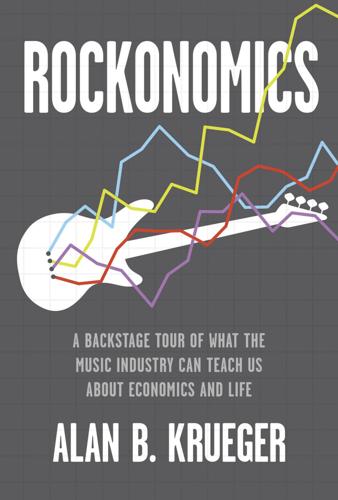
Rockonomics: A Backstage Tour of What the Music Industry Can Teach Us About Economics and Life
by
Alan B. Krueger
Published 3 Jun 2019
Here are a few notable examples: Bangladesh George Harrison and his sitar mentor, Ravi Shankar, led two landmark benefit concerts in 1971, and produced a live album and a documentary film for Bangladesh that eventually raised $12 million in humanitarian aid for the new nation, which was overwhelmed by war, natural devastation, and millions of refugees.35 “We Are the World” A charity song written by Michael Jackson and Lionel Richie and produced by Quincy Jones in 1985 that raised over $60 million for humanitarian aid in Africa and the United States. A star-studded cast of more than forty singers appeared on the recording.36 Live Aid Benefit Concerts A pair of concerts organized by the Irish and Scottish musicians Bob Geldof and Midge Ure to raise funds for humanitarian relief for Ethiopia, which was suffering a famine at the time. Over $200 million in donations was raised.37 Countless artists have supported social causes. Nina Simone, Harry Belafonte, Pete Seeger, Mahalia Jackson, Aretha Franklin, and many others are identified with the U.S. civil rights movement.
…
They overwhelmingly selected “financial insecurity” as their least liked aspect of being a musician.21 From an economic standpoint, the fact that there is an endless supply of people who are willing to create and perform music virtually for free because of its intrinsic appeal puts downward pressure on incomes in the industry for all but the superstars. In fact, singer/guitarist Bob Geldof lamented to me that in some clubs, bands are required to pay a fee for the privilege of performing.22 As J. P. Mei, an economist and founder of the Shanghai Peking Opera Company, put it, “The idea of a starving artist may be an equilibrium.” Even music superstars are relatively low-paid compared to superstars in other arenas.
…
Bob Dylan, Chronicles: Volume One (New York: Pocket Books, 2005). 19. lEIGh5, “Jason Pierce (Spiritualized) Interview: 2011,” Digging a Hole (blog), May 11, 2011, http://guestlisted.blogspot.com/2011/05/jason-pierce-spiritualized-interview.html. 20. Interview with Jacob Collier on Feb. 16, 2018, in Miami Beach. 21. Krueger and Zhen, “Inaugural Music Industry Research Association (MIRA) Survey of Musicians.” 22. Discussion with Bob Geldof on Nov. 17, 2017, at the Hamilton Project Retreat in New York City. 23. These data come from author’s calculations of data on CEO compensation of publicly traded companies, athletes, and musician earnings. See “Equilar | New York Times 200 Highest-Paid CEOs,” Equilar, May 25, 2018; “The World’s Highest-Paid Athletes,” Forbes, June 13, 2018; and Ed Christman, “Billboard’s 2018 Money Makers: 50 Highest-Paid Musicians,” Billboard, Jul. 20, 2018. 24.

The Hidden History of Burma
by
Thant Myint-U
In September 2018, the United Nations Security Council met in New York to discuss possible responses and listened to an impassioned address by the actress Cate Blanchett, who had visited the sprawling Rohingya refugee camps and who became the first film star to speak to the world’s highest security organ. New American and European sanctions were imposed, barely two years after the last were lifted, and Aung San Suu Kyi herself came under blistering criticism from once staunch allies in the human rights community for not doing more for the Rohingya. Erstwhile friends, from Bob Geldof to the Dalai Lama and Bishop Desmond Tutu, expressed disappointment at her inaction, and St. Hugh’s College, Oxford, which she’d attended, removed her portrait from public display and placed it in storage. The Canadian Museum for Human Rights, not wanting to go that far, kept her portrait in their “Gallery of Honorary Canadians” but dimmed the lights.
…
A wave of even more intense international criticism followed. In late September, St. Hugh’s College, Oxford, replaced Aung San Suu Kyi’s portrait with a classical Japanese painting entitled Morning Glory. A couple of months later, the cities of Oxford and Dublin stripped her of the awards they had given her in 2012. Bob Geldof, who had sung for her that year, said, “We should not have any truck with this woman . . . it’s ridiculous, but she’s sort of let us Dubliners down, she’s let Ireland down, because we thought she was wonderful. But we’ve been duped.”28 The views inside Burma were not only different but diametrically opposed.
…
Rick Gladstone and Megan Specia, “Pressure Rises at U.N. on Myanmar Over Rohingya Crisis,” New York Times, September 28, 2017. 26. Reuters, “Al Qaeda Warns Myanmar of ‘Punishment’ over Rohingya,” September 13, 2017. 27. Naaman Zhou and Michael Safi, “Desmond Tutu Condemns Aung San Suu Kyi: ‘Silence is too high a price,’” Guardian, September 8, 2017. 28. “He Admits Giving It Up Is ‘a PR Stunt’, but What Happens Now to Bob Geldof’s Freedom of Dublin?,” The Journal, November 13, 2017. 29. Aye Aye Soe, author interview, August 10, 2018. 30. Joe Freeman and Annie Gowen, “Burma’s Aung San Suu Kyi Under Fire as Alleged Military Abuse Follows Militant Attack,” Washington Post, November 4, 2018. 31. Tim McLaughlin, “How Facebook’s Rise Fueled Chaos and Confusion in Myanmar,” Wired, June 7, 2018. 32.

Brit-Myth: Who Do the British Think They Are?
by
Chris Rojek
Published 15 Feb 2008
Freddie Mercury, the camp lead singer of Queen, whose whole life might be interpreted as a rejection of narrow, British masculine conventions, occupies 58th place. James Connolly, one of the Irish revolutionaries who led the 1916 Easter uprising, is 64th. The occultist and drug addict Aleister Crowley is 73rd. Bob Geldof, the pop singer who gained world fame by organizing Live Aid, is 75th. John Lydon (‘Johnny Rotten’), the lead singer of the Sex Pistols, is 87th – one place ahead of Montgomery of Alamein. Bono, the lead singer of u2 and activist for world peace, is number 86. Marie Stopes, the campaigner for women’s rights who was vilified in her day for advocating birth control, is 100th.
…
Geri Halliwell is a successful, although declining, singer and former Spice Girl. She has also been a un Ambassador of Goodwill. Her position at number nine in the poll perhaps reflects distaste among some sectors of the public at her shrill, girl-next-door ponderings about global issues. Some performers, such as Bob Geldof, can switch from the stage of popular music to politics and retain credibility, but Halliwell seemed less relevant in the political sphere, and her involvement was widely perceived as forced and awkward. Alex Ferguson, the outspoken manager of Manchester United, has probably attracted as many votes from fans of United’s rival teams as for his somewhat ‘traditional’ views about football and man-management.

Me! Me! Me!
by
Daniel Ruiz Tizon
Published 31 May 2016
Just a month later, following on from ‘Wear Purple Friday’ and ‘Bake a Cake Friday’, but just before ‘Do Something Nice Friday’, there was another World Food Day. My suspicions were confirmed. It was not official. This was coming from within. How could you have two World Food Days in the space of a couple of months, I asked my manager. It would be like Live Aid staging another Live Aid before 1985 was even out. At least Bob Geldof had the decency to wait 20 years before inflicting Chris Martin and Live 8 on the world. Having a second World Food Day so soon after the first devalued the original day, which, as my manager reminded me, I’d excused myself from in addition to refusing to turn out for the office’s mixed sex soft ball team.
…
Their job doesn’t cover the rent they’re paying just to keep a roof over their head. They’re still going to be on that bus every morning, half-asleep and hungry. Next month they’re up in court for trying to pass themselves off as a Syrian who’d fled their homeland just so they could grab a couple of months free boarding at Bob Geldof’s swanky Chelsea pad after the former Boomtown Rats singer made the very public offer. They just wanted some respite from their life. That’s all. Go on. Turn that TV down a notch or two. Be a good neighbour. Old man with too young for him coat It’s the first of November. I have brought my winter coat out this morning to the café.
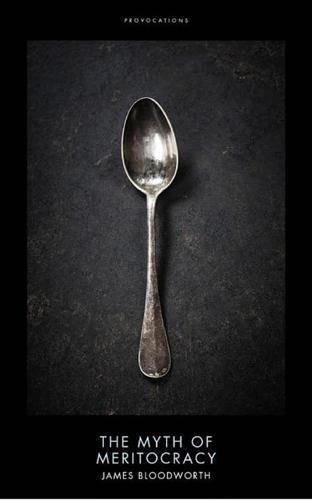
The Myth of Meritocracy: Why Working-Class Kids Still Get Working-Class Jobs (Provocations Series)
by
James Bloodworth
Published 18 May 2016
In recent years, plenty of other Sads have appeared on Britain’s collective radar. There was Rafferty Law, the son of Jude Law and Sadie Frost (modelling contract); Romeo Beckham, the son of David and Victoria (2013 face of designer brand Burberry); Brooklyn Beckham (stint as a photographer for Burberry); Pixie Geldof, daughter of Bob Geldof and Paula Yates (model, singer and socialite); not to mention Pippa Middleton, the younger sister of the Duchess of Cambridge (columnist and author). Flick through any newspaper or glossy magazine in Britain today and the chances are the children of privilege will be staring straight back at you.
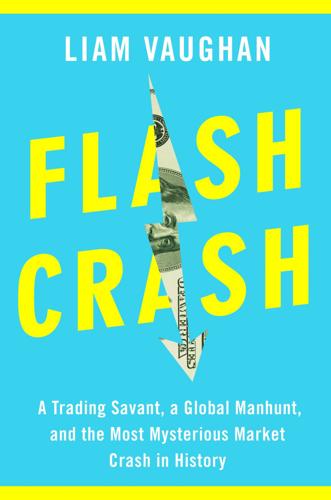
Flash Crash: A Trading Savant, a Global Manhunt, and the Most Mysterious Market Crash in History
by
Liam Vaughan
Published 11 May 2020
Lord Baker, who led the review, concluded it was, but the issue refused to die thanks to a string of high-profile cases, including that of Gary McKinnon, a Glaswegian IT worker who hacked into various U.S. military and NASA computers, leaving messages like “Your security is crap.” McKinnon, who was diagnosed with Asperger’s and suffered from psychotic episodes, said he was looking for evidence of UFOs. His plight became a cause célèbre among MPs and public figures such as David Gilmour, Chrissie Hynde, and Bob Geldof, who recorded a song to drum up awareness. The campaign failed to sway the High Court, but on the eve of McKinnon’s departure, then–home secretary Theresa May intervened to block the extradition on human rights grounds. The case might have provided a useful precedent for Sarao except for the fact that, uncomfortable with the pressure she’d been placed under, May had permanently rescinded the power of the home secretary to consider last-minute representations, removing another possible avenue for appeal.
…
There is a list of possible objections: They are laid out in the Extradition Act of 2003. Lord Baker, who led the review, concluded it was: “A Review of the United Kingdom’s Extradition Arrangements,” the Right Honorable Sir Scott Baker, September 30, 2011. David Gilmour, Chrissie Hynde, and Bob Geldof: The song, released in 2009, was a rerecording of Graham Nash’s “Chicago.” The case might have provided a useful precedent: Theresa May statement on Gary MacKinnon extradition, October 16, 2012, www.gov.uk. Arguing on Nav’s behalf was Lewis: In 2007, for example, Lewis convinced the High Court to block the extradition of hotel magnate and alleged fraudster Stanley Tollman to the United States so he could care for his sick wife.
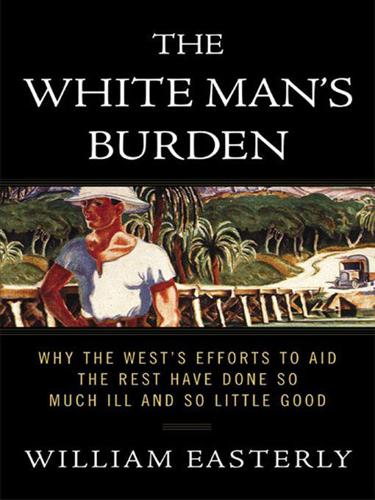
The White Man's Burden: Why the West's Efforts to Aid the Rest Have Done So Much Ill and So Little Good
by
William Easterly
Published 1 Mar 2006
At Davos in January 2005, British prime minister Tony Blair called for “a big, big push forward” in Africa to reach the Millennium Development Goals, financed by an increase in foreign aid.14 Blair commissioned a “Report for Africa,” which released its findings in March 2005, likewise calling for a “big push.” Gordon Brown and Tony Blair put the cause of ending poverty in Africa at the top of the agenda of the G8 Summit in Scotland in July 2005. Bob Geldof assembled well-known bands for “Live 8” concerts on July 2, 2005, to lobby the G8 leaders to “Make Poverty History” in Africa. Veterans of the 1985 Live Aid concert, such as Elton John and Madonna, performed, as did a younger generation’s bands, such as Coldplay. Hundreds of thousands marched on the G8 Summit for the cause.
…
The rich people demand big actions to solve big problems, which is understandable and compassionate. The Big Plans at the top keep the rich people happy that “something is being done” about such a tragic problem as world poverty. In June 2005, the New York Times ran an editorial advocating a Big Plan for Africa titled “Just Do Something.” Live 8 concert organizer Bob Geldof said, “Something must be done; anything must be done, whether it works or not.21 Something, anything, any Big Plan would take the pressure off the rich to address the critical needs of the poor. Alas, if ineffective big plans take the pressure off the rich to help the poor, there’s the second tragedy, because then the effective piecemeal actions will not happen.
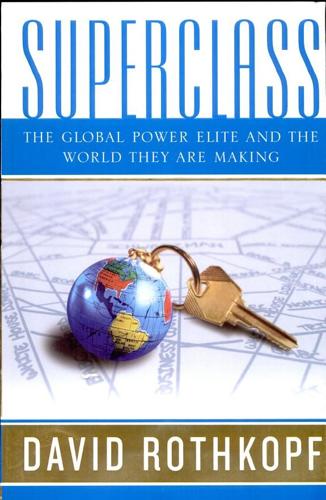
Superclass: The Global Power Elite and the World They Are Making
by
David Rothkopf
Published 18 Mar 2008
They are more famous and better recognized than almost anyone else on the planet—such is the power and reach of popular culture. A select few of these celebrities have transcended their pop culture status and aspired to use their unrivaled visibility to generate greater influence. Musicians like Bono or Peter Gabriel or Bob Geldof have become regulars at elite assemblies like Davos, but they can also be found behind the scenes, working with government leaders to advance causes like bringing aid to Africa. Bono, for one, has been a whirlwind in recent years, guest editing an issue of Vanity Fair on Africa, creating programs to raise awareness through highly identifiable “red” products that raise money for African causes, and pressing government leaders for debt relief for developing nations.
…
For David Beckham or Cristiano Ronaldo, for Michael Jordan or Tiger Woods or any big-name star endorsing a product, this is the power to generate revenue for a client, to draw consumers to merchandise or services associated with them. For others, it can be the power to raise awareness of an issue, to fuel passions and initiate action and mobilize resources, as have Bono, Bob Geldof, Angelina Jolie, and Shakira, the Colombian pop star and UNICEF ambassador. When Shakira tells Chilean president Michelle Bachelet, “Education is not a luxury, it is a right everyone should have,” it may not ring with new insight, but it has many more times the impact than a thousand experts would have.
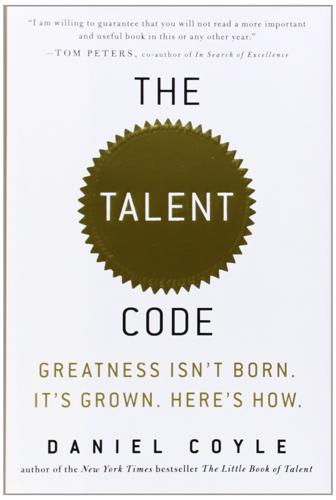
The Talent Code: Greatest Isn't Born, It's Grown, Here's How
by
Daniel Coyle
Published 27 Apr 2009
*3 For the sake of updating Eisenstadt, here's a partial list of show business stars who lost a parent before the age of eighteen: Comedy: Steve Allen (1, father), Tim Allen (11, father), Lucille Ball (3, father), Mel Brooks (2, father), Drew Carey (8, father), Charlie Chaplin (12, father), Stephen Colbert (10, father), Billy Crystal (15, father), Eric Idle (6, father), Eddie Izzard (6, father), Bernie Mac (16, mother), Eddie Murphy (8, father), Rosie O'Donnell (11, mother), Molly Shannon (4, mother), Martin Short (17, mother), Red Skelton (infant, father), Tom and Dick Smothers (7 and 8, father), Tracey Ullman (6, father), Fred Willard (11, father). Music: Louis Armstrong, Tony Bennett, 50 Cent, Aretha Franklin, Bob Geldof, Robert Goulet, Isaac Hayes, Jimi Hendrix, Madonna, Charlie Parker. The ignition effect seems to be present in the Beatles (Paul McCartney, 14, mother, and John Lennon, 17, mother) and U2 (Bono, 14, mother, and Larry Mullen, 15, mother). Movies: Cate Blanchett, Orlando Bloom, Mia Farrow, Jane Fonda, Daniel Day-Lewis, Sir Ian McKellen, Robert Redford, Julia Roberts, Martin Sheen, Barbra Streisand, Charlize Theron, Billy Bob Thornton, Benicio del Toro, James Woods.

Assassination Vacation
by
Sarah Vowell
Published 28 Mar 2005
Therefore, it bothers me that an educational edifice like the National Gallery of Art, which, as the name suggests, is operated by the federal government, fails to commemorate the site of a presidential assassination. Especially considering that once, on vacation in Ireland, I noticed the city of Dublin summoned the wherewithal to erect a plaque on a coffee shop celebrating the place as the site where Bob Geldof wrote the song “Rat Trap.” And “Rat Trap” wasn’t even the Boomtown Rats’ biggest hit. So here’s my paper Garfield plaque. On July 2, Garfield was in the sort of jolly good mood enjoyed by anyone about to escape the inferno that is a Washington summer. Accompanied by his sons Hal and Jim and Secretary of State James G.
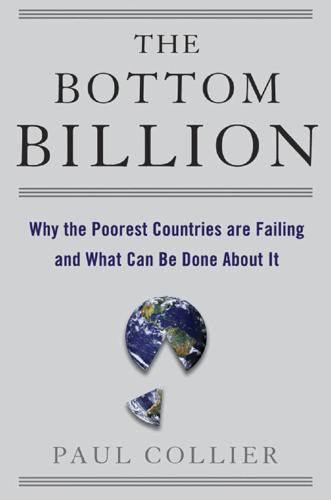
The Bottom Billion: Why the Poorest Countries Are Failing and What Can Be Done About It
by
Paul Collier
Published 26 Apr 2007
Again, I have been astonished by the response. World Vision, the largest of the development NGOs, invited me to address their board and we are now working together. Christian Aid will be represented on the advisory board of my research center: they tell me that they have changed staffing on trade policy. Bono and Bob Geldof have both been vigorous and passionate ambassadors for the policy proposals. TED and SKOLL, the two extraordinary conferences for social action, both invited me to speak—you can view the speech on the Internet. So I am hopeful that with new leaders in the international community, a more informed citizenry, and the opportunity provided by the commodity booms, the future of the bottom billion will be better than the past.

Is It Just Me?
by
Miranda Hart
Published 14 Apr 2012
You, unaware of this, ploughed on through the chorus, revealing to the assembled crowd that you’d been singing the lyrics as ‘feed the birds’ instead of ‘feed the world’. Yeah, maybe. That might have happened. It did happen. And it happened, I think, because you’d got the song muddled up with ‘Feed the Birds’ from Mary Poppins. I mean, think about it: why on earth would Bob Geldof have been getting so het-up about feeding the birds? What birds would he have been talking about? He’s staging a massive campaign, Band Aid, for starving birds? What birds? You should be ashamed of yourself. All right, fine. Why are you reminding me of all this? It’s for your own good. I want you to know and accept a certain fact about yourself, Little Miranda.
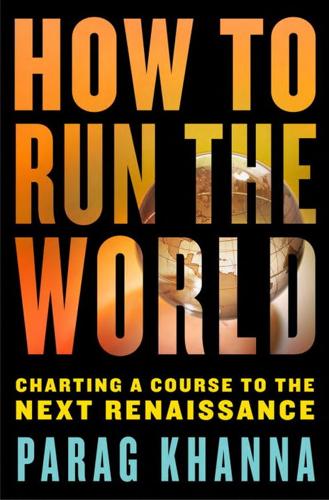
How to Run the World: Charting a Course to the Next Renaissance
by
Parag Khanna
Published 11 Jan 2011
History is taking notes right now. Frankly, history couldn’t care less what you or I say tonight. History only cares what we do when we leave, in the weeks, months, years even, that follow.”2 Corporate funding to combat AIDS has grown year after year. Bono’s sometimes partner in crime, British ex-rocker Bob Geldof, is known for a less subtle approach. At Live Aid in 1985, he simply screamed into the microphone, “Give us the fucking money!” As far as the people of destitute villages are concerned, it doesn’t matter if the person bringing freshwater, food, or vouchers is bug-eyed Bono or a stiff man in a suit—it’s what he delivers that matters.
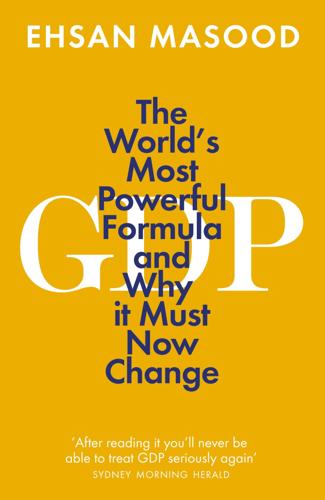
GDP: The World’s Most Powerful Formula and Why It Must Now Change
by
Ehsan Masood
Published 4 Mar 2021
“We were 100 years late in doing this,” he told me in an interview in June 2014. That project could easily have bombed, but Stern managed to hold it together, and it brought him to the attention of Tony Blair, who was then prime minister. At the time Blair, Brown, and the two pop-star campaigners Bono and Bob Geldof had set up a body called the Commission for Africa. This was essentially a blue-ribbon committee of Africa’s leaders, sitting alongside heads of state and international business leaders. Its aim was to bring more prosperity (including growth) to the countries of Africa. By the time Nick Stern attracted Blair’s attention, the Commission for Africa was having problems in part because of mounting tensions between Blair and Brown.2 Stern says the final report was “drifting.”
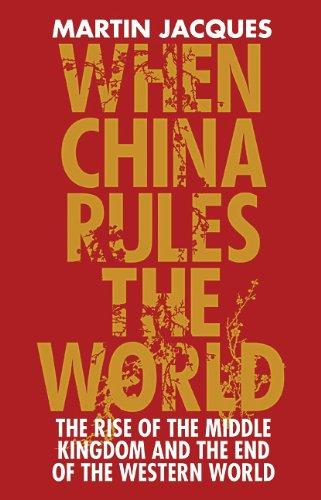
When China Rules the World: The End of the Western World and the Rise of the Middle Kingdom
by
Martin Jacques
Published 12 Nov 2009
(London: Centre for European Reform, 2008) Gray, John, False Dawn: The Delusions of Global Capitalism (London: Granta Books, 1998) ——‘(Re-)ordering the World: Dilemmas of Liberal Imperialism’, RSA Journal, 2:6 (2002) Gries, Peter Hays, China’s New Nationalism: Pride, Politics, and Diplomacy (Berkeley: University of California Press, 2004) Gries, Peter Hays, and Stanley Rosen, eds, State and Society in 21st-Century China (London: RoutledgeCurzon, 2004) Hall, Stuart, ‘A Different Light’, lecture to Prince Claus Fund Conference, Rotterdam, 12 December 2001 Hampden-Turner, Charles, and Fons Trompenaars, Mastering the Infinite Game: How East Asian Values are Transforming Business Practices (Oxford: Capstone, 1997) Harootunian, Harry, The Empire’s New Clothes: Paradigm Lost, and Regained (Chicago: Prickly Paradigm Press, 2004) Harrell, Stevan, ed., Cultural Encounters on China’s Ethnic Frontiers (Seattle: University of Washington Press, 1995) Hawksworth, John, and Gordon Cookson, ‘The World in 2050 - Beyond the BRICs: A Broader Look at Emerging Market Growth Prospects’, March 2008, posted on www.pwc.com, p. 3 Heisbourg, François, ‘Europe Must Be Realistic About Life After Bush’, Financial Times, 6 February 2008 Held, David, Democracy and the Global Order: From the Modern State to Cosmopolitan Governance (Cambridge: Polity Press, 1995) Hendry, Joy, ed., Interpreting Japanese Society: Anthropological Approaches (London: Routledge, 1986) Higashinakano, Shudo, The Nanking Massacre: Facts Versus Fiction, A Historian’s Quest for the Truth (Tokyo: Sekai Shuppan, Inc., 2005) Higgins, Charlotte, It’s All Greek to Me (London: Short Books, 2008) Hilsum, Lindsey, ‘China, Africa and the G8 - or Why Bob Geldof Needs to Wake Up’, in Leni Wild and David Mepham, eds, The New Sinosphere (London: Institute for Public Policy Research, 2006) Ho, P. Y., and F. P. Lisowski, A Brief History of Chinese Medicine and Its Influence (Singapore: World Scientific, 1998) Hobsbawn, Eric, The Age of Empire 1875- 1914 (London: Weidenfeld and Nicolson, 1987) ——Age of Extremes: The Short Twentieth Century 1914- 1991 (London: Michael Joseph, 1994) ——‘America’s Neo-conservative World Supremacists Will Fail’, Guardian, 25 June 2005 ——Globalisation, Democracy, and Terrorism (London: Little, Brown, 2007) Howell, Jude, ed., Governance in China (Oxford: Roman and Littlefield, 2004) Hu Angang, ‘Five Major Scale Effects of China’s Rise’, unpublished seminar paper, East Asia Institute, National University of Singapore, 2005 ——‘Green Development: The Inevitable Choice for China, Parts One and Two’, posted on www.chinadialogue.net (accessed 2/6/08) Huang Ping, ‘“Beijing Consensus”, or “Chinese Experiences”, or What?’
…
Sautman and Yan, ‘Honour and Shame?’, p. 59. 23 . Alden, China in Africa, pp. 52-3. 24 . Ibid., pp. 52-3, 55, 84-5. 25 . Abah Ofon, ‘South-South Co-operation: Can Africa Thrive with Chinese Investment? ’, in Wild and Mepham, The New Sinosphere, p. 27. 26 . Lindsey Hilsum, ‘China, Africa and the G8 - or Why Bob Geldof Needs to Wake Up’, in Wild and Mepham, The New Sinosphere, pp. 6-7. 27 . Mark Curtis and Claire Hickson, ‘Arming and Alarming? Arms Exports, Peace and Security’, in Wild and Mepham, The New Sinosphere, p. 41. 28 . Alden, China in Africa, p. 26. 29 . Interview with Jeffrey Sachs, ‘Africa’s Long Road Out of Poverty’, International Herald Tribune, 11 April 2007. 30 .
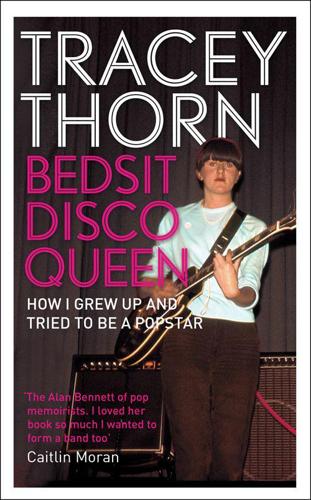
Bedsit Disco Queen: How I Grew Up and Tried to Be a Pop Star
by
Tracey Thorn
Published 7 Feb 2013
Mind you, I should also be honest and admit that at this stage my interest was still largely that of your average hormonally afflicted Bay City Rollers fan – i.e., I fancied them. 7 Aug – ‘Steve Jones – CCORR!!!’ 6 Oct – ‘J. J. Burnel is so hunky!! Luv his jeans!!*???!!** 3 Nov – ‘David Bowie was on TOTP. Boy, he’s so hunky’ 1 Dec – ‘Bob Geldof is so gorgeous’ And so on, and so on … At this point I was simply having fun with it all in a quite uncomplicated way, still just a fourteen-year-old pop fan. Sadly this phase didn’t last long, and as it began to occur to me that liking punk was, or was supposed to be, somehow different to liking David Essex, things got more awkward, especially at home.
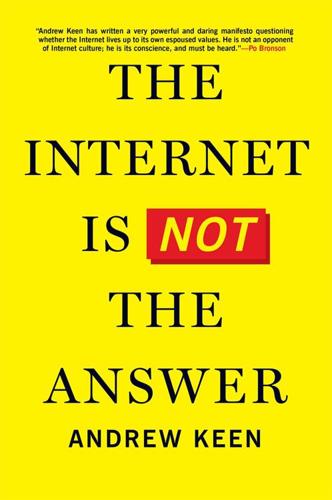
The Internet Is Not the Answer
by
Andrew Keen
Published 5 Jan 2015
Everyone was replacing their vinyl records with the more convenient and cleaner-sounding CDs and the eighties were extremely profitable years for the recorded music industry, creating many thousands of new jobs and investment opportunities. HMV had even invested in the largest music store in the world on Oxford Street, a three-story, 60,000-square-foot building that had been opened by Bob Geldof in a October 1986 ceremony that not only attracted “tens of thousands of people” but also shut down Europe’s major shopping street.3 Back then, the economic promise of the music business certainly offered a vivid contrast to the sad fate of my family’s fashion fabric business. It had gone bankrupt in the mideighties, a victim of rapidly changing technology and fashion.
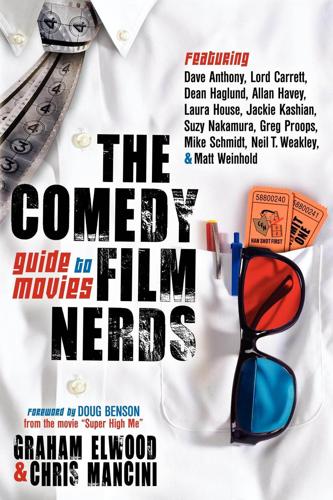
The Comedy Film Nerds Guide to Movies
by
Graham Elwood
and
Chris Mancini
Published 31 May 2012
HONORABLE MENTIONS: The Buddy Holly Story (1978) This retelling of Buddy Holly’s life pissed off one-time Cricket Sonny Curtis so much that he wrote the song “The Real Buddy Holly Story.” Like American Graffiti, it contains the always enjoyable Charles Martin Smith. Get your facts elsewhere and have 114 minutes of fun! Pink Floyd The Wall (1982) This was the last time Sir Bob Geldof was cool. Blue Velvet (1986) There are few creepier scenes than Dean Stockwell lip synching Roy Orbison’s “In Dreams” into a mechanic’s work light. Who Is Harry Nilsson (And Why Is Everybody Talkin’ About Him?) (2010) This documentary tells the story of an angelic voiced upstart who grew up in a New York City slum and wound up part of rock royalty.
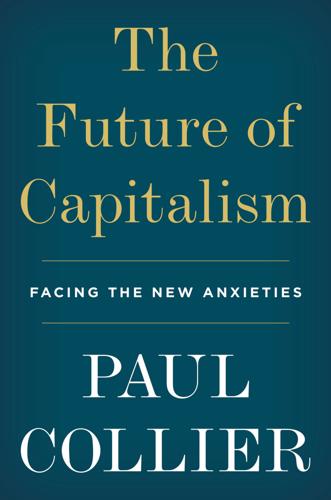
The Future of Capitalism: Facing the New Anxieties
by
Paul Collier
Published 4 Dec 2018
Teachers have broken down in tears as children who have never willingly picked up a pencil write as if their lives depended on it. And everything gets followed up: Rotherham classes have published collections of poems distributed around the world; the Royal Shakespeare Theatre Company has come and performed for them; Bob Geldof has written a story for them. Appetites can be ignited; habits can be changed. This brilliant initiative – the creation of one impassioned woman – can be scaled up and modified to fit different local contexts. Already it has attracted delegations from China and South Korea. Yes, this is Rotherham that East Asians are learning from, not Hampstead.
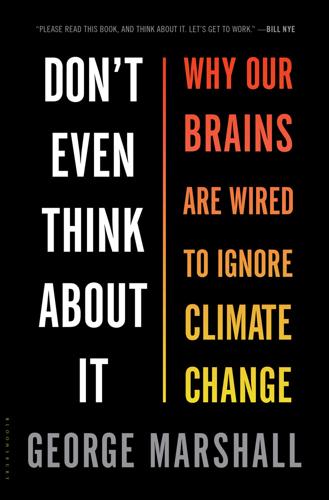
Don't Even Think About It: Why Our Brains Are Wired to Ignore Climate Change
by
George Marshall
Published 18 Aug 2014
They had focused on bringing attention to issues that already had proximity: starvation in Ethiopia and debt alleviation. But Live Earth was building awareness for an issue that was still distant to most people. Wall was “very disappointed” by the lack of follow-up on the momentum he had created, complaining that environmentalists had “done a lousy job of working together.” Bob Geldof, organizer of the original Live Aid concert, had already warned that the absence of concrete measures meant that Live Earth would “just be an enormous pop concert.” A spokesman for Live Earth responded to Geldof, saying that “people are aware of global warming but millions are not doing anything about changing their lifestyles.”
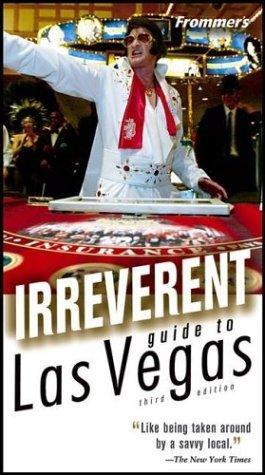
Frommer's Irreverent Guide to Las Vegas
by
Mary Herczog
and
Jordan S. Simon
Published 26 Mar 2004
The most tranquil is Little Church of The West (tel 800/821-2452; 4617 Las Vegas Blvd. S.; www.littlechurchlv.com), open for business since 1942. Elvis Presley and Ann-Margret staged a happy ending here in Viva Las Vegas, and movie-mad Japanese have invaded in droves ever since. Real-life celebrity hitchings include Dudley Moore, Judy Garland, Bob Geldof, Zsa DIVERSIONS 122 Zsa Gabor, Cindy Crawford, and Mickey Rooney—who married all eight of his wives here, starting with Ava Gardner. (What were the others, especially number 8, thinking?) The faux-pine cabin has a certain rustic charm, with an adorable steeple and bell tower, delightful garden, and, inside, cedar-paneled tower, candelabras, and lace curtains.
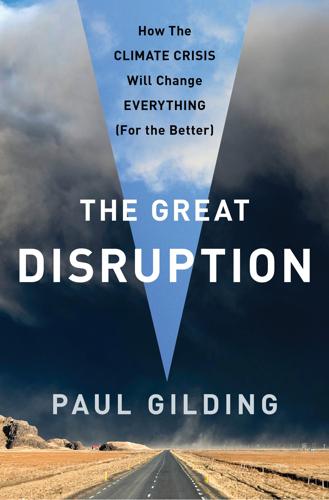
The Great Disruption: Why the Climate Crisis Will Bring on the End of Shopping and the Birth of a New World
by
Paul Gilding
Published 28 Mar 2011
We thought we could lift people out of poverty simply by increasing the amount of stuff and wealth in the whole system, without having to engage in the difficult question of redistribution of wealth—everyone could have more, so everyone could be happy! Of course, there has long been a significant social movement calling for us to take stronger action to eliminate poverty and realize our full potential as humanity. Joining millions of people around the world who campaign on such issues have been rock star activists like Bob Geldof and Bono, who have engaged the broad public with excellent campaigns like “Make Poverty History.” But fundamentally, the response has still been premised on economic growth, the idea that everyone could have more. The logic and morality of this call to end poverty have grown stronger as we have grown richer.
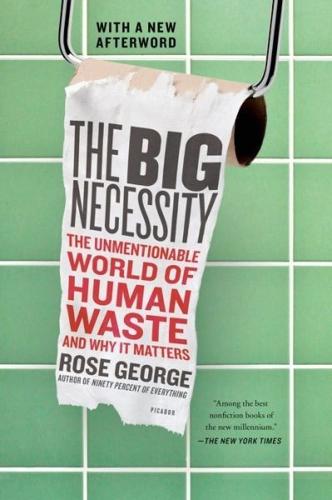
The Big Necessity: The Unmentionable World of Human Waste and Why It Matters
by
Rose George
Published 13 Oct 2008
“We can get celebrities to talk about water,” a WaterAid employee tells me. “But none of them want to be pictured on a toilet.” Clean water gushing from a new hand pump makes for great press coverage. Accompanying a child to her new latrine does not. WaterAid probably isn’t fussy. If there’s no Bono or Bob Geldof, they’ll take a regular politician who champions sanitation. Except there aren’t many of those, either. There are some subjects that politicians just don’t like, and sanitation is among them. A sanitation expert with several decades of experience tells me he can list the influential political figures in sanitation on one hand.
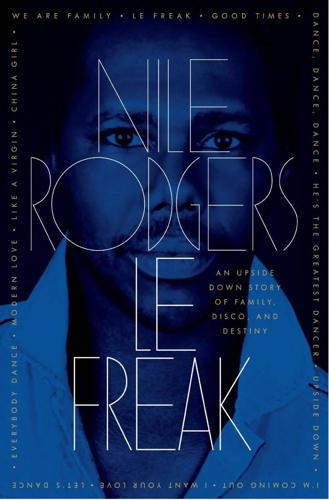
Le Freak: An Upside Down Story of Family, Disco, and Destiny
by
Nile Rodgers
Published 17 Oct 2011
She’d been poor and had to do a job for money to make ends meet, and who can’t relate to that? But she wasn’t anybody’s boy toy, no matter what her belt buckle said. After her set was through, she graciously played tambourine and sang backing vocals with the Thompson Twins. Most of the day’s musical press was about Bob Geldof, David Bowie and Mick Jagger’s “Dancing in the Streets” (which I also produced as a single), the band Queen’s historic London performance, and Phil Collins’s transatlantic London-and-Philly adventure (he performed his own set in both venues, and in Philly also played with Led Zeppelin alongside Chic’s drummer Tony Thompson).
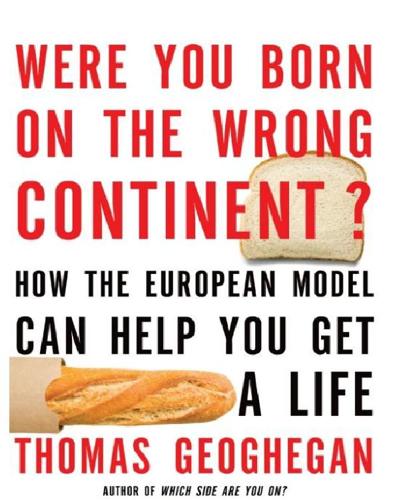
Were You Born on the Wrong Continent?
by
Thomas Geoghegan
Published 20 Sep 2011
These were IG Metall–type apprentices, and they weren’t like the kids in the cafés. Instead they wore black-and-white car coats and were from obscure little German towns, but all of them were marching, at night, both boys and girls, striking against the big global companies for not delivering on jobs. At about the same time as the strike, IG Metall held a rock concert with Bob Geldof, which drew fifty thousand people, mostly kids. Here’s a shocking thing to a U.S. labor lawyer like me: in 2008, youth membership in IG Metall—kids under twenty-seven who voluntarily pay union dues—climbed yet again, this time by 6 percent. At last count, IG Metall had over two hundred thousand of these kids!
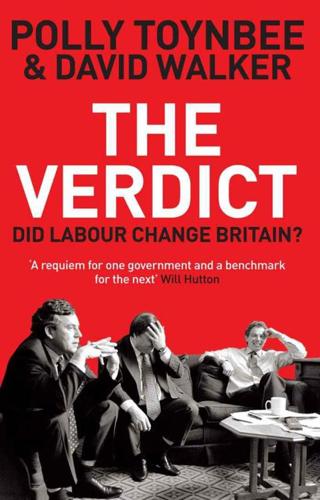
The Verdict: Did Labour Change Britain?
by
Polly Toynbee
and
David Walker
Published 6 Oct 2011
Such countries as Ghana, Mozambique, Rwanda, Tanzania and Uganda, where the UK was a big donor, saw growth and less poverty. The UK was largely a bystander as Zimbabwe collapsed, pushing millions across the Limpopo into South Africa, whose ANC government refused to put pressure on its former comrade-in-arms, Robert Mugabe. Blair established an Africa Commission, Bob Geldof among its members, which underpinned declarations at the Gleneagles summit. But it had little effect in the horn of Africa, or the Sudan or the Ivory Coast, where war and dictatorship – and misaligned French and UK policies – thwarted development. Humanitarian disasters became more common; in 2001–2, with the Department for International Development providing £279 million in aid, the UK was the second largest donor of humanitarian aid for disasters.
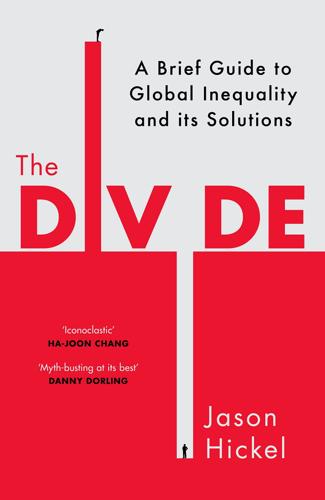
The Divide: A Brief Guide to Global Inequality and Its Solutions
by
Jason Hickel
Published 3 May 2017
We encounter it everywhere we turn: in the form of charity shops like Oxfam and Traid, in TV ads from Save the Children and World Vision, in annual reports published by the World Bank and the International Monetary Fund, and every time we see the world’s nations ranked by GDP. We hear it from rock stars like Bono and Bob Geldof, from billionaires like Bill Gates and George Soros, and from actors like Madonna and Angelina Jolie, khaki-clad and mobbed by eager African children. We get it in the form of Live Aid concerts and celebrity fundraising singles like ‘Do They Know It’s Christmas?’, which somehow manages to crop up every year.

Checkpoint Charlie
by
Iain MacGregor
Published 5 Nov 2019
Afterward, a Stasi report complained that the country had been double-crossed by the western authorities but that a wind traveling from east to west had mitigated much of the effect. At the very least, it all illustrated there was a huge appetite in East Germany for the kind of large-scale gigs that now occurred regularly around the globe since the heady days of Bob Geldof’s all-day concert to raise money for famine relief in Africa, Live Aid. That event had signaled to many governments and politicians the power of popular music to reach a global audience, and how if promoted correctly it could shed light on causes, people, and perhaps even countries. The Tunnel of Love Express tour wasn’t in the tradition of Bruce’s previous tours of visiting numerous cities and venues across many months.
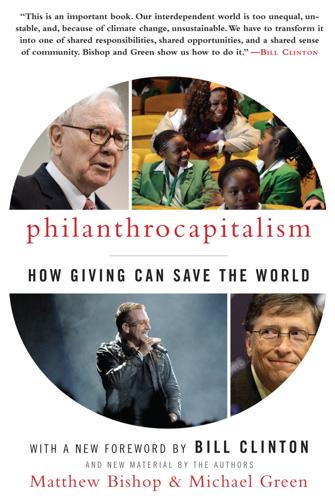
Philanthrocapitalism
by
Matthew Bishop
,
Michael Green
and
Bill Clinton
Published 29 Sep 2008
ONE SIGN OF the seriousness of some celanthropists is the growing institutionalization of their philanthropy, including the establishment of foundations and hiring of professional philanthropic advisers. But by far the most businesslike example of celanthropic organization building is the formation of One. Its roots extend back to the Band Aid record of 1984 and Live Aid concert of 1985, organized by Irish rock musician Bob Geldof and featuring Bono. As well as raising lots of money, these had generated massive publicity about the problems of developing countries and turned a generation into activists. A newly elected backbench MP called Tony Blair founded the Band Aid cross-party Parliamentary committee. Eventually, encouraged by British activist Jamie Drumond, Bono and Geldof became involved in another campaign, Jubilee 2000, built on the fact that the interest owed by Ethiopia each year on its debt dwarfed the money raised by Live Aid—and that many other poor countries were in a similar position.
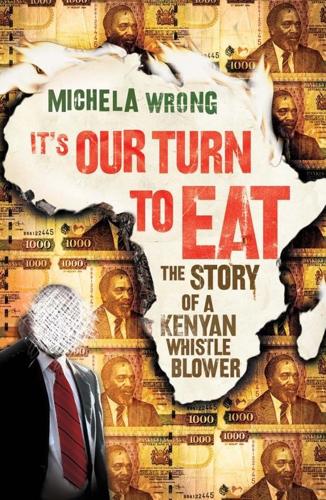
It's Our Turn to Eat
by
Michela Wrong
Published 9 Apr 2009
Jeffrey Sachs, the brilliant American economist who campaigned in favour of a massive hike in funding, appeared to have won the emotional, if not the intellectual, argument. Other analysts might shake their heads at Sachs's simplistic formula for the continent's recovery, but he had successfully wooed pop-star campaigners like Bono and Sir Bob Geldof, and their ability to mobilise a younger generation bored by traditional politics awed Western governments. Whether on the right or left, political parties realised that promising to ‘save’ Africa was a potential vote-winner in the eyes of an idealistic coming generation. No wonder members of the African elite, aware of these pressures, sometimes sounded unappetisingly smug when contemplating tortured Western attitudes to the continent.
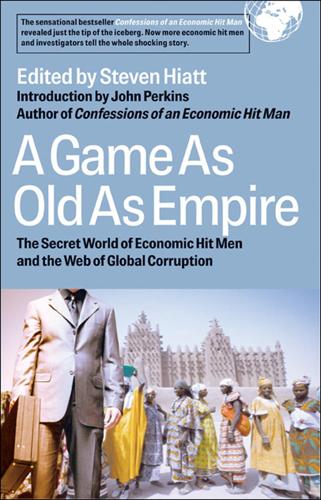
A Game as Old as Empire: The Secret World of Economic Hit Men and the Web of Global Corruption
by
Steven Hiatt; John Perkins
Published 1 Jan 2006
Edward Alden, David Pilling, and Hugh Williamson, “Export Credit Agencies’ Graft Crackdown Stalls,” Financial Times, February 15, 2006. 11 G8 debt relief programs will cut less than 1 percent of the $3.2 trillion that developing countries still owe—and their harsh terms will exact additional hardship. What’s next for the debt relief campaign? The Mirage of Debt Relief James S. Henry We should have known that it was high time to study the fine print when veteran rock stars Bono and Bob Geldof, film stars Angelina Jolie and George Clooney, liberal comedian Al Franken, U.S. Treasury Secretary John Snow, World Bank President Paul Wolfowitz, and the UK’s Gordon Brown and Tony Blair all lined up on the same side of the field to cheer the G8’s July 2005 decision to provide “$40 billion of debt relief” to poor, heavily indebted developing countries.
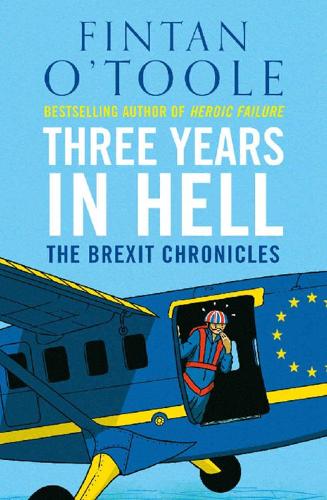
Three Years in Hell: The Brexit Chronicles
by
Fintan O'Toole
Published 5 Mar 2020
It was a play on ‘I Don’t Like Mondays’, a hit song in 1979 by the Irish rock band the Boomtown Rats. The song in turn was inspired by a mass shooting in a US school playground. Asked why she did it, the shooter, a sixteen-year-old girl, replied, ‘I don’t like Mondays. This livens up the day.’ The lyrics, written and sung by Bob Geldof, now a prominent campaigner against Brexit, had her adding that ‘I wanna shoot that whole day down’. Within hours of Tusk’s playfully optimistic tweet, Monday’s hopes would indeed be shot down. The shots came from Arlene Foster, the leader of the Democratic Unionist Party (DUP), a right-wing Evangelical party in Northern Ireland, whose ten members of the Westminster Parliament are keeping Theresa May’s minority government in office.
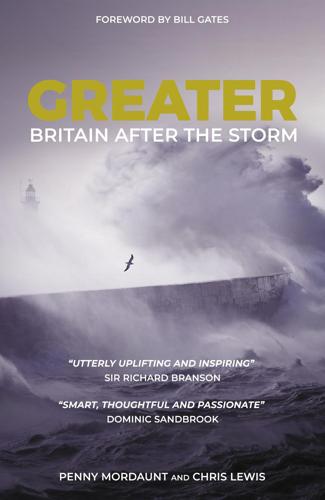
Greater: Britain After the Storm
by
Penny Mordaunt
and
Chris Lewis
Published 19 May 2021
By focusing solely on our own needs, we are directed inwards, but St Augustine pointed out that at the heart of man there existed a ‘God-shaped hole’, a desire for fulfilment that no amount of money, food, sex and drugs could ever fill. If we were to go looking for true leaders, they would not be those acting for personal gain; they would be those acting in service. Why does Britain have so many charities? Is it compassion? Empathy? Guilt, even? What was it that motivated Sir Bob Geldof to found Live Aid? The cynical mind might accuse him of career opportunism, but that would not have sustained such an enterprise. The notion that artists in a notoriously competitive and cut-throat industry would cooperate was ridiculed. But it worked. It was a big idea and it grew bigger. The resulting concerts raised £150 million for those in need in Ethiopia.28 This sort of cause unifies; it brings people together for a higher reason; it motivates and it removes division.
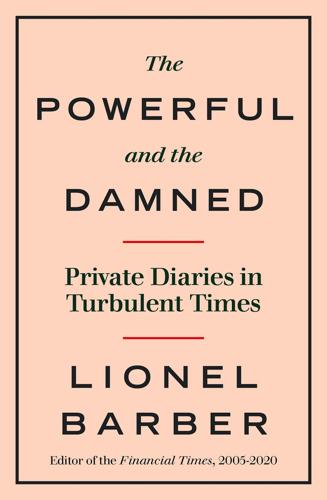
The Powerful and the Damned: Private Diaries in Turbulent Times
by
Lionel Barber
Published 5 Nov 2020
Young Kim, his partner, has invited Victoria and me to the funeral service held at the deconsecrated church now known as One Marylebone, opposite Great Portland Street station. We take our seats behind Vivienne Westwood, the grand dame of fashion design and McLaren’s former partner. She’s wearing her signature headband ‘chaos’. Other guests include Sir Bob Geldof, Turner Prize-winner Tracey Emin and punk-era glitterati with orange, green and jet-black hair, many decorated in chains and black leather jackets. The service is comically unruly, marked by an interfamilial row, a wolf caller from the Arctic North and a choir from Tiffin School, McLaren’s alma mater.
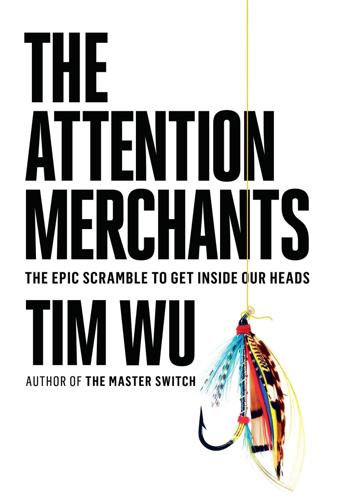
The Attention Merchants: The Epic Scramble to Get Inside Our Heads
by
Tim Wu
Published 14 May 2016
While many people were probably drawn to the same idea, in 1994 a British producer named Charlie Parsons pitched the idea of mixing The Real World’s documentary format with a 1950s game show structure and dramatic competition. The idea was called, fittingly, a “documentary game show.” As part of a production team, including Bob Geldof, onetime lead singer of the Boomtown Rats and later the founder of Live Aid, Parsons pitched the new format to Swedish public television. Originally named Castaway and later Expedition Robinson, the show, set on a remote desert island, staged an ongoing physical competition under constant surveillance.
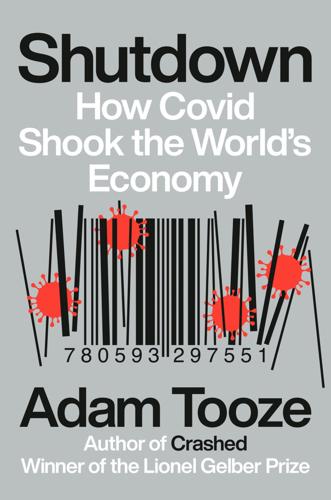
Shutdown: How COVID Shook the World's Economy
by
Adam Tooze
Published 15 Nov 2021
But in the new era of developing world debt, they were a diminishing part of the overall problem. The debt landscape in 2020 reflected earlier rounds of debt relief. The last round had been initiated in 1996 by the Heavily Indebted Poor Countries Initiative and the Jubilee Debt Campaign spearheaded by celebrities like Bono and Bob Geldof. It reached culmination at the 2005 Gleneagles summit of the G8.19 This slashed the debt-to-GDP ratio of the thirty-five lowest-income countries.20 In the years after, lending by rich country governments, organized in the Paris Club, moved increasingly into the background.21 Rather than loans, they provided financial assistance in the form of grants.
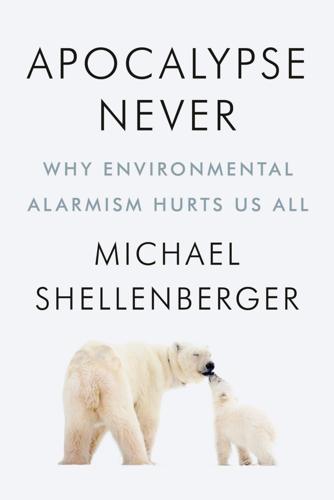
Apocalypse Never: Why Environmental Alarmism Hurts Us All
by
Michael Shellenberger
Published 28 Jun 2020
“Life on Earth is dying.” And, “Governments aren’t addressing it.”2 By 2019, Extinction Rebellion had attracted the support of leading celebrities, including actors Benedict Cumberbatch and Stephen Fry, pop stars Ellie Goulding and Thom Yorke, 2019 Oscar-winning actress Olivia Colman, Live Aid producer Bob Geldof, and Spice Girl Mel B. While Extinction Rebellion may not have been representative of all environmentalists, nearly half of Britons surveyed told pollsters they supported the group.3 And the British were not alone. In September 2019, a survey of thirty thousand people around the world found that 48 percent believed climate change would make humanity extinct.4 But by the fall of that same year, public support for Extinction Rebellion, including the sympathy of journalists, rapidly declined after the organization shut down streets and public transit throughout London.
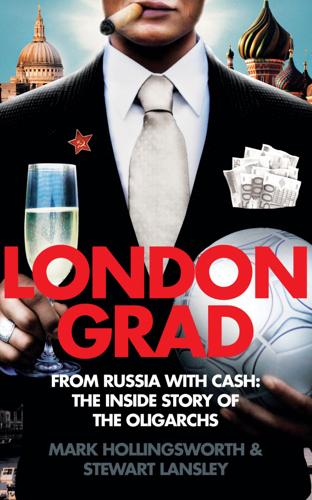
Londongrad: From Russia With Cash; The Inside Story of the Oligarchs
by
Mark Hollingsworth
and
Stewart Lansley
Published 22 Jul 2009
They compete with each other.’12 An extravagant and eccentric dresser, Evgeny Lebedev was educated at Holland Park School, Mill Hill School, then the LSE, and also studied art history. In 2006 Tatler listed Lebedev as the third most eligible bachelor in Britain. Later that year, at a George Michael concert at Earl’s Court, he sat alongside Kate Moss and Bob Geldof in the VIP enclosure. Charismatic and an energetic late-night socialite, the young Lebedev owns and operates a Japanese restaurant, Sake No Hana, in St James’s Street, just a few doors down from White’s, the epitome of British establishment private clubs. His father, Alexander Lebedev, had been born into a Moscow academic family, studied economics, and gained a PhD on Russia’s foreign debt.
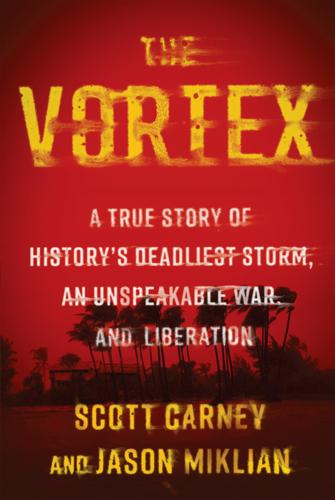
The Vortex: A True Story of History's Deadliest Storm, an Unspeakable War, and Liberation
by
Scott Carney
and
Jason Miklian
Published 28 Mar 2022
Piggybacking off of Beatlemania, the album of the concert sold a million copies and won a Grammy, raising nearly $10 million. It became the model for dozens of other aid concerts that followed. Ever since, celebrity activists have tried to use their brand to amplify worthy causes. To name just two, Bono and Bob Geldof called the concert an inspiration for Live Aid, the world’s second major aid concert aimed at raising money for the 1985 Ethiopian famine victims. But the aftermath of the Concert for Bangladesh had a darker side. Money that was supposed to go to UNICEF sat in a lawyer’s bank account for twelve years awaiting an IRS audit into tax evasion and improper nonprofit registration.
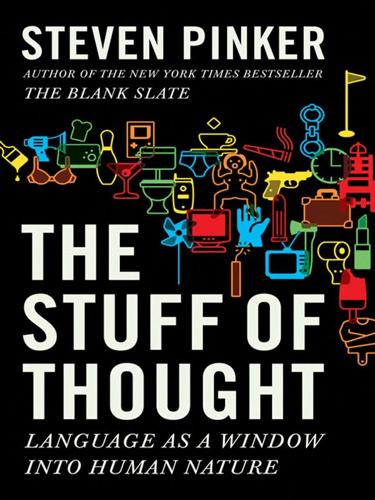
The Stuff of Thought: Language as a Window Into Human Nature
by
Steven Pinker
Published 10 Sep 2007
On the other hand, they don’t want to saddle their child with a name that is so distinctive that the child is marked as coming from a family of greenhorns or misfits. At one extreme we find celebrities like the actress Rachel Griffiths, who named her son Banjo, the magician Penn Jillette, who named his daughter Moxie Crime-Fighter, and the rock star Bob Geldof, who named his daughters Little Pixie, Fifi Trixibelle, and Peaches Honeyblossom. At the other we have the boxer George Foreman, who named all five of his sons George. Most parents are somewhere in between. The problem with everyone trying to be moderately distinctive is that they are in danger of being moderately distinctive in the same way.
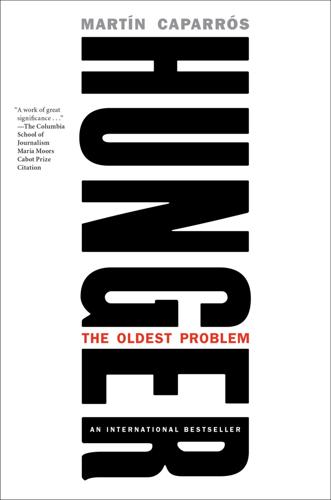
Hunger: The Oldest Problem
by
Martin Caparros
Published 14 Jan 2020
So he didn’t say anything—and he rejected aid being offered to him by organizations and NGOs, insisting it wasn’t necessary. When there was no longer any choice but to admit what was happening, a million people had already died. There were campaigns, festivals, collections for Ethiopia. A new personality then joined these campaigns: Bob Geldof, Bono, and Live Aid; that’s when the conscientious rock star was invented, our current version of a Voltairean intellectual, a person who takes advantage of the fame they have achieved through a cultural endeavor to help the disadvantaged. And, in this case, a person who doesn’t propose to change the global system but rather to use their access to it, a person who hangs out with the nice powerful people in the world to support his cause—because his cause doesn’t question those powerful.

A History of Modern Britain
by
Andrew Marr
Published 2 Jul 2009
(Churchill took the view that the starvation was the fault of the occupying power and the blockade should stay – the argument was strikingly similar to those made about sanctions imposed on Saddam Hussein’s Iraq in the Major and Blair years.) What made the later movement different was the fusion of celebrity, music and television to raise unheard-of sums. It began with the Irish rock star Bob Geldof, and Midge Ure of the band Ultravox, who were shocked by news coverage of the 1984 Ethiopian famine by the BBC’s Michael Buerk. They formed a thirty-strong ‘supergroup’ to make a fundraising Christmas single, ‘Do They Know It’s Christmas?’ It raised £65 m and Geldof managed to persuade Margaret Thatcher to waive VAT for the famine victims.

The London Compendium
by
Ed Glinert
Published 30 Jun 2004
Camden Palace / Music Machine, No. 1a A grand Edwardian music hall venue, it opened in 1900 as the Camden Theatre and has since served as a cinema, BBC studio (the Goons’ show was often recorded here) and the Music Machine punk/new wave venue, which stayed open until 2 a.m. six nights a week. In that incarnation it was plagued by trouble: Bob Geldof was attacked on stage at a June 1977 Boomtown Rats gig; the Human League had to play behind riot shields to protect their equipment, mostly computers, on 17 August 1978; and a twenty-year-old man was stabbed to death while talking to a friend on the stairway in January 1979. Three years later, at the height of the new romantic era, the venue reopened as the Camden Palace, hosting a narcissistic club run by Steve Strange.
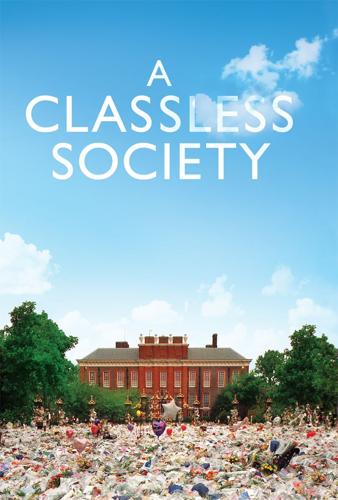
A Classless Society: Britain in the 1990s
by
Alwyn W. Turner
Published 4 Sep 2013
A similar impulse lay behind the creation of a Holocaust Memorial Day, first observed on 27 January 2001, the anniversary of the day that the Soviet Red Army liberated Auschwitz in Poland (as opposed to, say, the day that British troops liberated Belsen, or Yom HaShoah, the Jewish day of commemoration). A ceremony in Westminster Central Hall attracted the great and the good, from Prince Charles to the major party leaders, as well as a collection of celebrities including Antony Sher, Emma Thompson, Ian McKellen, Bob Geldof and Trevor McDonald, presumably chosen to represent ethnic and sexual diversity. To the surprise of some, this gesture was not universally welcomed. Already observance of Yom HaShoah was in decline and there was a debate within British Jewry about whether the continuing focus on the Nazi genocide was proving counter-productive, alienating younger generations with negative images of victimhood.
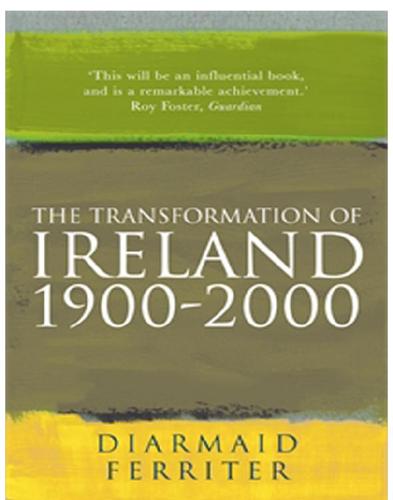
The Transformation Of Ireland 1900-2000
by
Diarmaid Ferriter
Published 15 Jul 2009
I doubt that in many countries would the manager of a rock band be appointed to the Arts Council, as I have been.’335 Much of this was part of a conspicuous youth culture, but by the end of the century, serious criticisms were being made of decline in the quality of pop music. The 1990s were marked (and marred) by the rise of the manufactured boy bands, dependent not on musical talent, but skilful marketing, and in this league the Irish enjoyed phenomenal success. In 2000, the journalist Liam Fay pointed out that when musicians like Bob Geldof and the Boomtown Rats appeared on The Late Late Show in the 1970s, while half the nation were ‘balling their fists in fury’ the younger half were delighted, because they represented for them an alternative culture and a new generation who had angry things to say, but that ‘during the past decade or so mainstream Irish popular music has become slurry-soft, all the easier to channel into the ongoing campaign to sell Ireland abroad and to ourselves as a bucolic idyll peopled with happyclappy bodhrán rapping riverdancing rustics’.336 ‘there to administer to our shared passion’ In the 1970s, state support for sport remained minimal, depending on massive armies of volunteers, but interest in Irish sporting endeavour entered a new phase when the Irish soccer team qualified for its first European championships in 1988, and its first World Cup in 1990, where it reached the quarter finals under the management of Jack Charlton.

The Rough Guide to England
by
Rough Guides
Published 29 Mar 2018
Chinatown and the two big draws of the Discovery Museum and Centre for Life are west of the centre, while east is the renowned Laing Gallery and, a short walk along the river, the old industrial Ouseburn area, home to an alternative cultural scene, interesting galleries, the excellent Seven Stories children’s museum and some popular bars. In the north of the city, on the university campus, is the Great North Museum: Hancock; further north, through the landscaped Exhibition Park, is the Town Moor, 1200 acres of common land where freemen of the city – including Jimmy Carter and Bob Geldof – are entitled to graze cattle. BALTIC By the Millennium Bridge, Gateshead Quays, NE8 3BA • Mon & Wed–Sun 10am–6pm, Tues 10.30am–6pm • Free • 0191 478 1810, balticmill.com Fashioned from an old brick flourmill, BALTIC sits on the Gateshead riverbank, by the Millennium Bridge. Designed to be a huge visual “art factory”, it’s second only in scale to London’s Tate Modern.
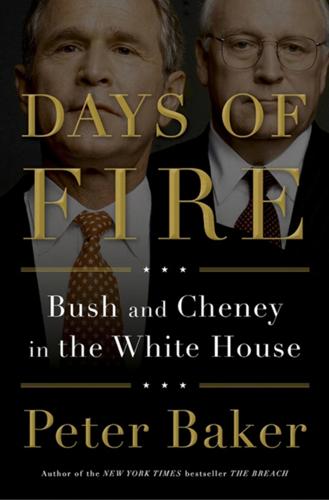
Days of Fire: Bush and Cheney in the White House
by
Peter Baker
Published 21 Oct 2013
In Tanzania, Bush had spent $817 million to provide medicine and other care to hundreds of thousands of AIDS patients. During his visit, the two leaders signed a $698 million, five-year Millennium Challenge contract to rebuild roads, expand electricity generation, and provide more clean water. Accompanied by Bob Geldof, the rocker-activist, Bush savored the interlude between crises and later called the trip “the best of the presidency.” Condoleezza Rice thought that may have been the happiest moment of Bush’s tenure. “He loved being in Africa,” she observed. “The last trip was very validating.” Bush was not as popular back home, even at the campaign headquarters of the Republican hoping to succeed him.

Lonely Planet Ireland
by
Lonely Planet
Trad Playlist The Quiet Glen (Tommy Peoples) Paddy Keenan (Paddy Keenan) The Chieftains 6: Bonaparte's Retreat (The Chieftains) Old Hag You Have Killed Me (The Bothy Band) Popular Music From the 1960s onward, Ireland produced its fair share of great rock musicians, including Van Morrison, Thin Lizzy, Celtic rockers Horslips, punk poppers The Undertones and Belfast's own Stiff Little Fingers (SLF), Ireland's answer to The Clash. And then there were Bob Geldof's Boomtown Rats, who didn't like Mondays or much else either. But they all paled in comparison to the supernova that is U2, formed in 1976 in North Dublin and one of the world's most successful rock bands since the late 1980s. What else can we say about them that hasn't already been said? After 13 studio albums, 22 Grammy awards and upwards of 170 million album sales they have nothing to prove to anyone – and not even their minor faux pas in 2014, when Apple 'gave' copies of their latest release, Songs of Innocence, to iTunes subscribers whether they wanted it or not, has managed to dampen their popularity.

Ireland (Lonely Planet, 9th Edition)
by
Fionn Davenport
Published 15 Jan 2010
POPULAR MUSIC From the bland but supremely fashionable showbands of the 1960s, popular music took off towards the end of the decade with Van Morrison, whose blues-infused genius really put Irish music on the map. The 1970s were dominated by rock and punk: Thin Lizzy, Celtic rockers Horslips and punk poppers the Undertones were very popular, as were Belfast’s own Stiff Little Fingers (SLF), Ireland’s answer to the Clash and as good a punk band as there ever was, and the Boomtown Rats, fronted by Bob Geldof. And then a supernova was born in North Dublin. The world and her sister have an opinion about U2 and, especially, their shy, un-opinionated lead singer Bono, but there’s no denying that the band are without question Ireland’s most important musical export and a rival to the likes of the Rolling Stones for megastardom and longevity.